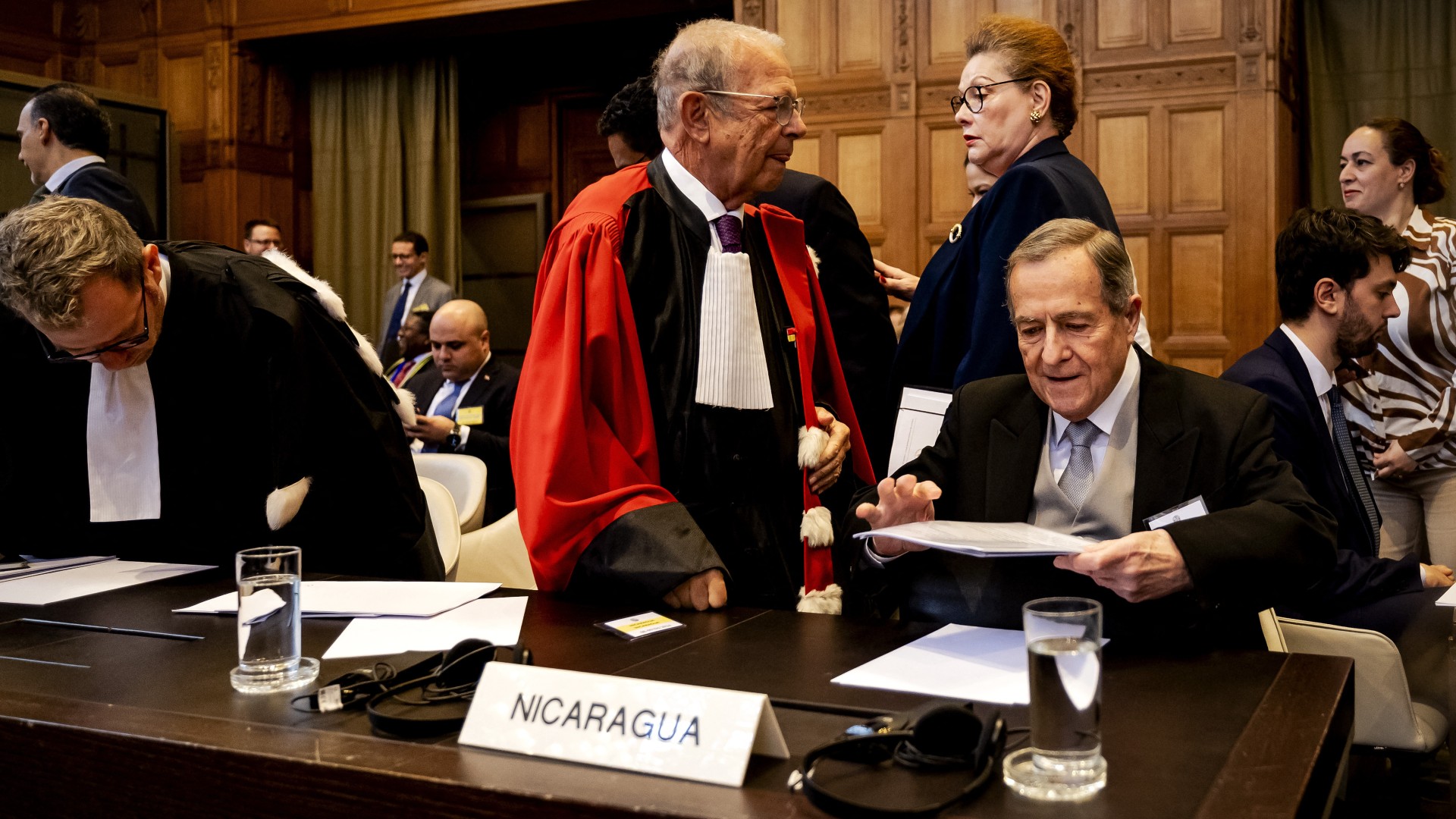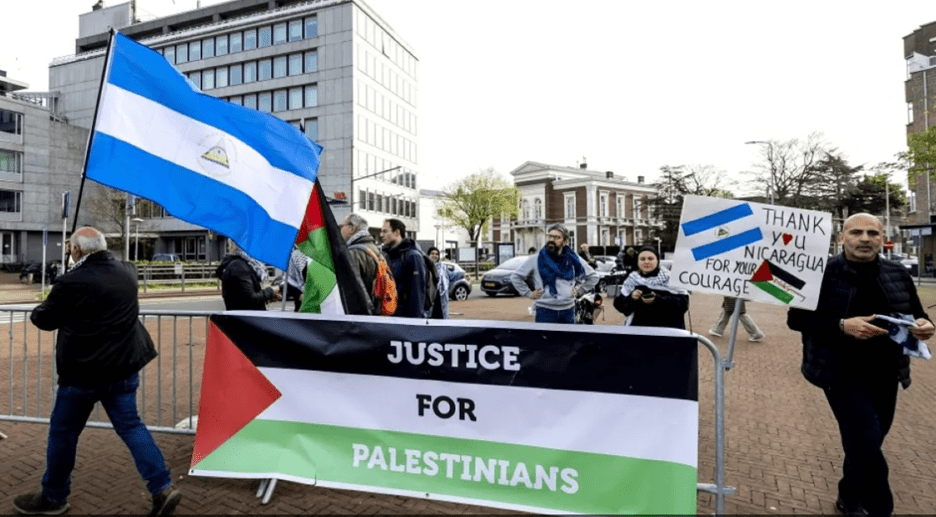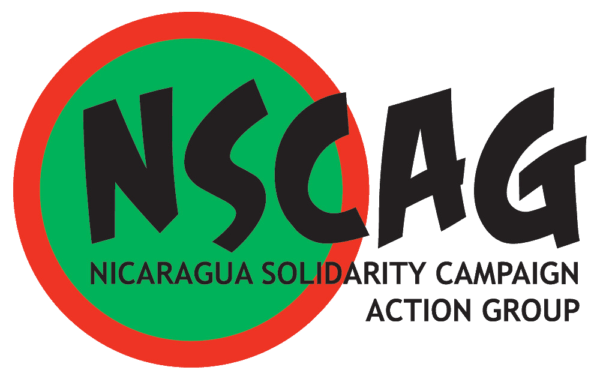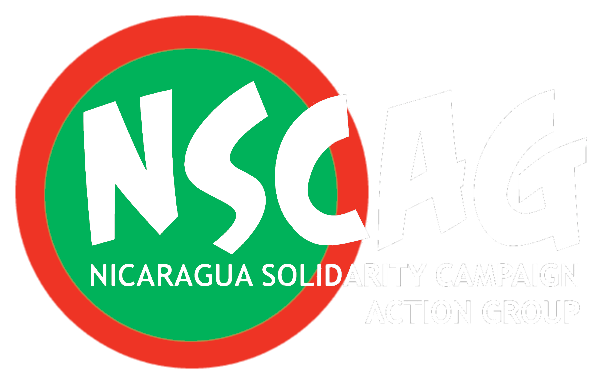Nicaragua Solidarity Campaign Action Group
5 August 2024
Nicaragua-Palestine, solidarity through seeking international justice

The following article is based on a presentation at the AGM of NSCAG and interviews with Dr Carlos Arguello, Nicaraguan representative to the International Court of Justice (ICJ) since 1984.
Nicaragua uses accumulated experience of the ICJ to bring a case against Germany for ‘failing in its obligation to prevent the commission of genocide.’
In the first years of the 1980s the US initiated a ‘covert war to destroy the Sandinista Revolution.‘
Dr Arguello explained that in this period there were discussions among the Sandinista leadership as to how to defend the Revolution not only by military means but also using ‘international legal weapons.’ Out of these discussions Nicaragua agreed to pursue a case against the US in the ICJ; this was presented to the Court in 1984.
In 1986 the ICJ found the US guilty of being in breach of its ‘obligations under customary international law not to use force against another State,’ and ‘not to interrupt peaceful maritime commerce,’ a reference to the CIA mining of Nicaraguan harbours.
However the US refused to recognise the jurisdiction of the ICJ over the case and to this day has never paid the US$17bn reparations owed to Nicaragua.
This was recognised as a major victory in a David vs Goliath struggle exposing yet again US hypocrisy in upholding international law only when it suits its interests to do so.
When asked whether it’s a waste of time to pursue such cases knowing the US or any other country wont comply Dr Arguello responded that in such situations the only thing left is the ‘mobilisation of shame.‘
Since 1986 Nicaragua has been involved in number of cases in the ICJ so has accumulated considerable experience of international law and diplomacy, in particular how to use the ICJ as an ‘international legal weapon’ and a ‘solidarity instrument’.
A group of countries including South African began meeting in October/November 2023 to consider what action to take internationally to contribute to stopping the rapidly escalating Israeli war on Gaza.
Dr Arguello explained that as a very small country Nicaragua has very little it could contribute to Palestine in terms of financial or material aid but what it could offer is decades of experience with the ICJ.
An agreement was reached that South Africa would present the case against Israel under the UN Genocide Convention. The ICJ made an interim ruling in January 2024 to the effect that Israel ‘must take all measures within its power to prevent acts of genocide.’
Since then 13 other countries including Nicaragua, Mexico, Chile, Cuba, Brazil, Bolivia and Colombia have supported the case.
In the meantime Dr Arguello explained Nicaragua had been weighing up options for further action including a case against Germany, Canada, UK or the Netherlands for colluding with Israel’s genocidal actions in Gaza through providing arms. The possibility of taking actions against the US was ruled out on the grounds that te US does not recognise the jurisdiction of the ICJ.
On 1 March, Nicaragua instituted proceedings against Germany for ‘failing in its obligation to do everything possible to prevent the commission of genocide’ by supplying arms to Israel, and for suspending funds to the United Nations Relief and Works Agency for Palestine Refugees (UNWRA).
In the ICJ hearing on 4 April Dr Arguello argued that ‘Germany has violated these obligations imposed on all states,’ adding that Germany has not been able “to differentiate between self-defence and genocide” in the case of Israeli action on Gaza. Nicaragua requested that the Court impose provisional measures on Germany to halt all arms sales to Israel and restore UNWRA funding.
Germany argued that it had already restored UNWRA funding, that Nicaragua’s evidence was ‘flimsy’, and that its very ‘robust export licensing laws’ mean that arms and other equipment provided to Israel are of a defensive nature therefore do not violate international law.
The ICJ rejected Nicaragua’s request for provisional measures. However, the fact that there was a public hearing was a considerable embarrassment for Germany who had attempted to prevent this from happening. The case also constitutes a warning to other countries providing arms and other equipment to Israel.
Meanwhile very strong statements were issued by UN Secretary General Antonio Guterres and the International Criminal Court (ICC) has issued an arrest warrant for Israeli Prime Minister Benjamin Netanyahu and Hamas leader in Gaza,Yahya Sinwar, for war crimes and crimes against humanity.’
On 19 July the ICJ issued an ‘advisory opinion’ in response to a 2022 UN General Assembly request for a ruling on the legality of Israeli ‘occupation, settlement and annexation of Palestinian territory since 1967.’
The ruling states that the State of Israel’s continued presence in the Occupied Palestinian Territory is unlawful and must end as rapidly as possible, all new settlement activities must cease immediately; all settlers must be evacuated from the Occupied Palestinian Territory. In addition Israel must pay reparations for damage caused.
In defiance of the ICC ruling, the US Congress provided a platform for Benjamin Netanyahu who received a standing ovation for informing members that ‘Israeli fighters are on the front line of civilisation, give us the tools faster and we will finish the job.’
Palestinian Democrat, Rashida Tlaib periodically held up a placard with ‘genocide’ on one side and ‘war crimes’ on the other. She echoed the belief of millions worldwide when she stated ‘The US lectures the world on international law and order then greets a genocidal war criminal with a standing ovation. This is US hypocrisy on full display, it was disgusting.’
All these mobilisations whether in the ICJ or in university encampments or on the streets all over the world complement each other in putting greater and greater international pressure to isolate Israel and its allies and bring some level of international justice to the people of Palestine.


